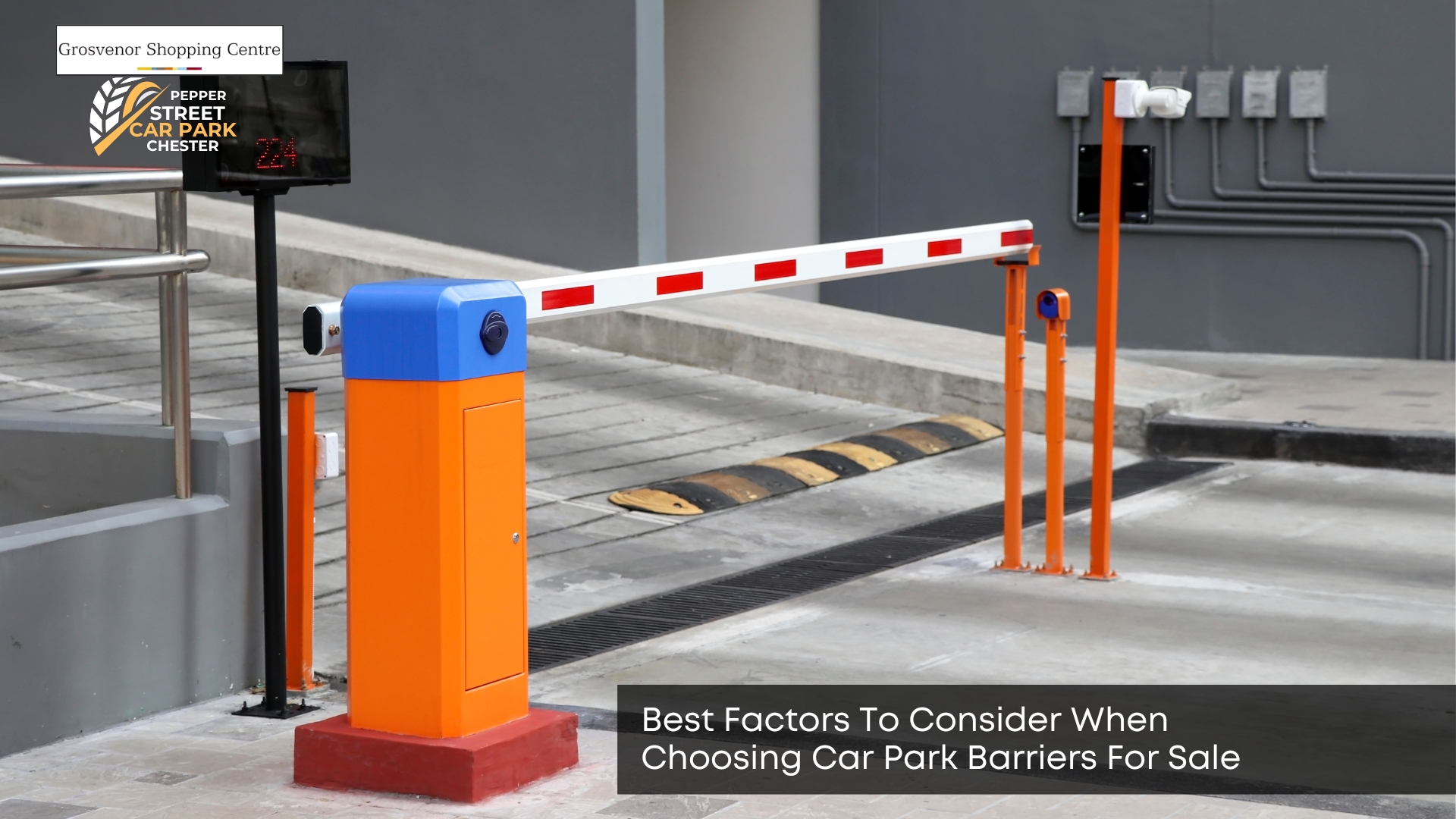Car park barriers help control who enters and leaves a parking area, making them key to security, safety and traffic flow. But choosing the right barrier isn’t always simple, especially with so many options on the market. From manual arms to high-tech automatic systems, every detail matters, especially if you want something reliable and long-lasting. In this guide, we look at the best factors to consider when choosing car park barriers for sale, so you can make a smart and informed decision.
What Are Car Park Barriers Used For?
Car park barriers are used to manage vehicle access, control entry and exit points, and improve overall security in both public and private parking areas. They help stop unauthorised vehicles, reduce congestion, and make sure only those with permission can enter. Barriers are common in office buildings, retail parks, flats and paid car parks. With this purpose in mind, selecting the right type becomes even more important.
Why Is It Important to Choose the Right Barrier?
Choosing the right barrier is important because it affects how well your car park operates and how secure it is. A poorly chosen barrier might break down often, create traffic delays, or allow unauthorised access. The right barrier should match the volume of traffic, the level of security needed, and your budget. Getting it wrong can lead to repairs, complaints or costly upgrades. The first step in making the right choice is knowing what types are available.
What Types of Car Park Barriers Are Available?
The most common types include manual lift barriers, automatic boom barriers, swing gates and rising bollards. Manual barriers are low-cost and good for low-traffic areas, while automatic barriers are better for busy car parks. Swing gates and bollards offer more security but take longer to operate. Some systems are stand-alone, while others connect to access control or ticketing. From here, one major decision is whether to go manual or automatic.
Should You Choose Manual or Automatic Barriers?
Manual barriers are cheaper and easier to install but require someone to operate them, which may not be practical in busy locations. Automatic barriers, on the other hand, work with sensors, keypads or remote access systems and allow smoother entry and exit without constant supervision. They’re better for medium to high traffic areas and can work 24/7. This choice also depends on the material and durability of the barrier you need.
What Materials Are Best for Durability and Weather Resistance?
Steel and aluminium are common materials used in barrier arms and posts because they’re strong, long-lasting and weather-resistant. Powder-coated finishes protect against rust, while plastic-covered tips on boom arms reduce damage if bumped. For areas with extreme weather, make sure the motor housing and control units are sealed against water and dust. These durable materials also affect the size and shape of the barrier.
How Do You Decide on the Right Barrier Size and Height?
The right size and height depend on the width of your entrance, the height of vehicles using the car park and any overhead limits. Standard boom arms usually cover up to six metres, but larger sites may need telescopic or folding arms. Always measure carefully and allow space for turning vehicles. Getting the size right also helps support key safety features.
What Safety Features Should a Good Barrier Include?
Good safety features include flashing lights, reflective strips, safety loops, emergency release options and anti-crush sensors that stop the barrier if something’s underneath. Some systems also have timers or soft-close functions to prevent accidents. These features reduce risk to people, cars and the barrier itself. Many of these features link directly with access control technology.
Do You Need Access Control Integration with Your Barrier?
Yes, access control can be essential if you need to manage who enters your car park using number plate recognition, keycards, fobs or intercoms. Barriers that work with these systems allow fast, secure entry and help monitor usage. Integration is especially useful for paid car parks, private premises or staff-only areas. Once chosen, integration should also work well with your maintenance and setup needs.
How Easy Is the Barrier to Install and Maintain?
Some barriers are designed for quick setup with plug-and-play features, while others require groundwork and wiring. Check if the system comes with a full installation guide or professional support. Regular maintenance includes checking moving parts, cleaning sensors and testing safety features. Choosing a barrier that’s easy to maintain will save time and money in the long run. It’s also worth thinking about how it runs day to day.
What Are the Power and Control Options for Automatic Barriers?
Automatic barriers can be powered by mains electricity, solar panels or battery backup for emergencies. Control options include push buttons, remote controls, keypads and vehicle sensors. Some systems connect to mobile apps or building access setups, which are commonly seen in city centre parking environments where efficient flow matters. Choose what best suits your site and how much automation you want. Once you’ve compared features, pricing comes into play.
How Much Do Car Park Barriers Usually Cost?
Car park barriers typically cost between £500 and £3000 depending on size, type, features and brand. Manual barriers are at the lower end, while automatic systems with access control are more expensive. Don’t forget to factor in installation, wiring and future maintenance costs. Comparing quotes and supplier support can help you find the best deal. Even with a good deal, common mistakes should still be avoided.
What Mistakes Should You Avoid When Buying a Barrier?
Avoid choosing a barrier without checking traffic flow, entry width or installation limits. Skipping safety features or buying low-quality parts may lead to early breakdowns or risks to drivers. Some buyers forget to check for integration with existing systems or neglect future maintenance needs. Avoiding these errors ensures you get the right setup for your car park. A careful review brings you to the final decision.A common oversight is failing to consider how barriers will operate in tight zones or compact parking bays, especially when space and turning room are limited.
How Can You Ensure You Choose the Right Barrier for Your Car Park?
You can choose the right barrier by first assessing your site’s size, traffic level, and security needs, then comparing features, materials, safety systems and supplier support. Look for a solution that fits your budget but also offers long-term value. Read product reviews and ask for installation advice if needed. A well-chosen barrier improves safety, control and efficiency every day. Good barrier planning works hand in hand with smart layouts, especially if your site includes compact parking tricks to help users fit into tighter spots.


Leave a Reply